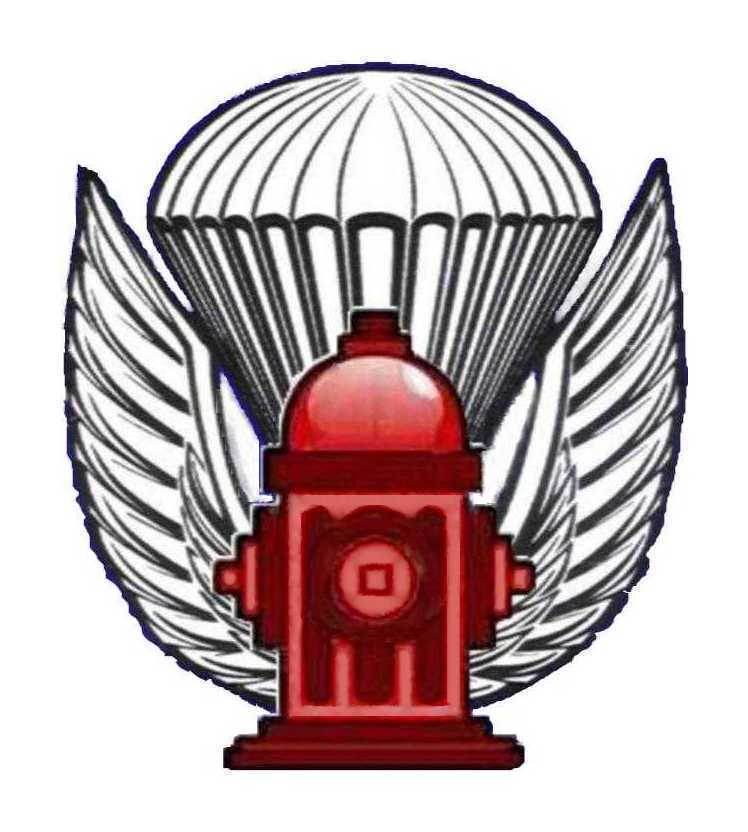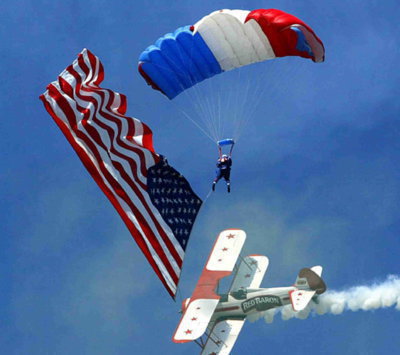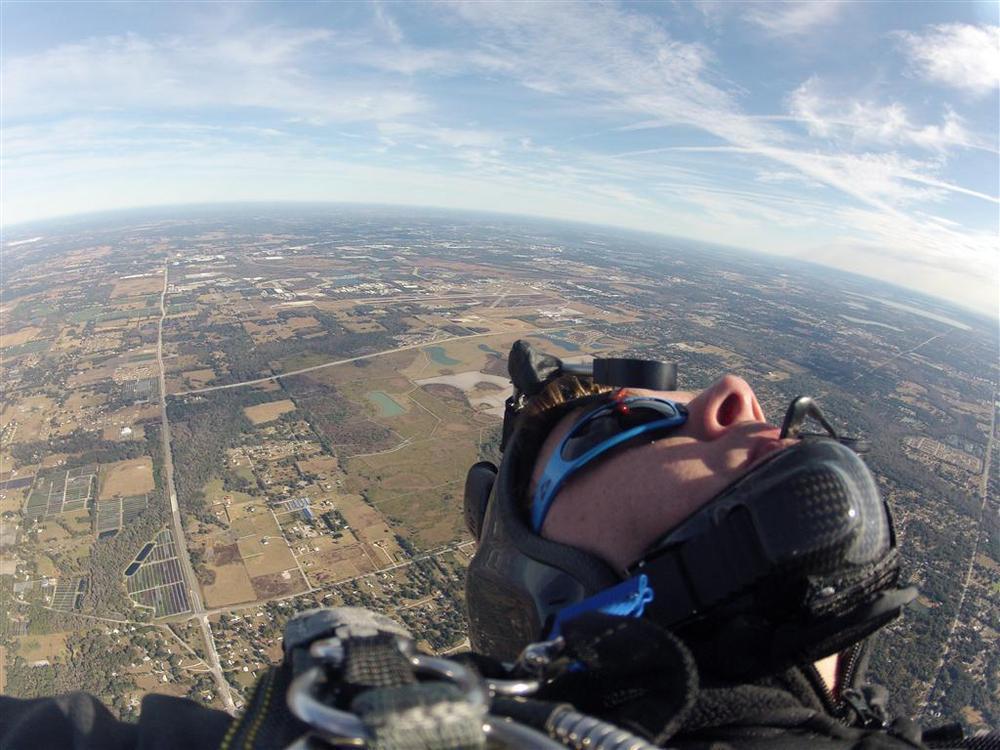Recommended Posts
QuoteQuotesome kind of sensor to detect when there's no closing loop installed. I've practiced a lot of product liability law; and without getting extensively into the reasons, IMO that theory would probably fail in most US courts.
I'm not asking you to get too expensive in detail, but how about a thumbnail regarding why that might fail...I'm happy it should, just wonder why it 'might'.
And thanks for the input of reason injected here Andy.
You'll understand if I prefer not to get into that level of the issue in the public forum. I'll send you a PM when I get a chance.
Thanks, I'm just curious...it seems what you're describing makes sense and that's refreshing in regard to many things with the court system!
~ If you choke a Smurf, what color does it turn? ~
QuoteThe rigger bears the burden of negligence IMO. I don't care what your job is. If you perform it negligently and someone dies because of your failure, well you bear the burden of responsibility for their death.
Just wondering - not to anyone in particular, but to any who wish to hold the rigger grievously liable -
Is there any rigging error that would not be negligent? That would be considered a simple mistake?
Is this error drawing so much ire because it is so egregious? Is this an error that is so blatant that is cannot be called a simple mistake?
Is this in the same class as leaving a molar strap or a clamp inside? Or are those errors even worse? Or less bad, for that matter?
I am getting the impression that some would like to say that there are NO errors in rigging.
That's not ever going to be true.
So I wonder what sort of error would not draw this sort of response.
Doctors have far more training than most riggers, and they still make mistakes. And some of them are treated simply as mistakes, without assignment of overwhelming liability.
Please don't think that I want to hold the rigger blameless.
I just don't know how much blame should be heaped on him.
As has been said, he must already live with this. Maybe that's enough?
Stepping out of the plane has risks associated. Most waivers call for acceptance that another person's mistake can kill you in this, and that you accept that as part of doing this.
Where and how do we draw the line between mistakes that warrant this sort of response, and those that do not?
Which rigging errors might be covered by the waiver?
Is there any line? If so, where?
This is not a rhetorical question. I'm not trying to convince people that this isn't a horrible mistake.
I am honestly trying to understand where we might draw a line, or if there is a line to be drawn at all.
I am very careful. I've shown lots of people lots of rigging, and they have always been impressed with the care I bring to the table. But I am sure that I have made mistakes, though I have been lucky enough so far to not have any associated with an injury or death.
If there is NO room for an error, than I am not certain I want to rig for anyone else anymore. How could anyone?
JerryBaumchen 1,048
If I were to spend five days writing, I could not have put it better. I just hope that people on here understand what you have written.
Since I build certificated parachute products I have talked with a number of attorneys about 'my' product liability. One of the attorneys at the best law firm in the PacNW told me point blank that should the family of a deceased ever come to them, they would list everyone that they possibly could in the initial suit. Then the courts start sorting things out.
A lot of us may not like that, but it is the way of things.
Thank you,
JerryBaumchen
PS) I have posted about this before; back in the 80's, J. Scott Hamilton was an aviation attorney in Denver. He once told me that he felt that the person with the highest liability exposure in a parachute lawsuit would be the rigger with his name & signature on the packing data card.
The difference between the two is that the student died...the error was not found during a repack cycle. If it had been found during a repack cycle we would have never heard about it because THIS gear was maintained exclusively by the owner of the DZ.
Any rigging error that would cause a catastrophic failure of the reserve or any device that could be considered a persons last chance is inexcusable, actionable (or should be) and cannot be considered to be a 'mistake'...it is negligence.
As far as the waiver goes...Most people who make a single skydive and most students do not realize that the Skydiving Industry is not regulated. They are told about the USPA and they may have a slight awareness of the FAA, but they do not realize that there are no inspections...no checks and balances and that basically NO ONE is looking out for the public's best interest. The FAA and the USPA have their hands tied and do not have the money or the authority to monitor Drop Zones and uphold any kind of standards. Not until a student becomes experienced, do they come to the understanding that they are on their own and had better get informed and not count on ANYONE to take care of them and to realize the difference between a well maintained airplane, a good pilot and a DZ that maintains their gear...and one who cuts corners.
That is the difference. This was a student who did not even own the gear he was jumping, he was renting it. It is the responsibility of the owner to uphold his promise, and the implied promise at every DZ I have ever jumped at was that the student gear was properly maintained. Not only was a horrendous mistake made here...the DZO also had a history of KNOWINGLY skimping on the maintenance of his tandem gear. A pattern that proves that he needs his ticket pulled.
NovaTTT 1
I think a minor mistake is some oversight that doesn't have dire or even perilous consequences.
Example: Rigger loses/leaves a piece of paper, a pen or a loose pull-up cord in the packjob or pack tray.
A major mistake is some oversight that might or could have serious consequences.
Example: Rigger leaves small shot bag or short bar in the packjob.
A critical or potentially fatal error is a major mistake that would result in the failure of the system to function properly.
Example: A molar strap left in place, or a closing loop not routed through the AAD cutter.
As you well know, I know, it is our responsibility as riggers to make damn sure we use care and practices that minimize the possibility of making even a minor mistake. Mistakes happen to better and more highly trained people than riggers, but that's just all the more reason to be extra careful and vigilant about counting tools, adhering to procedures and avoiding distractions while rigging.
I'm reminded of a current pop culture saying:
Don't Be That Guy!
.02
Nova
QuoteMy opinion, in this particular case, is that this is such an inexcusable error and it happened on student gear, that it absolutely horrified me. Students are the most likely to go unstable...lose altitude awareness, and pull too late (by all appearances this student probably finally opened his MAIN, about the time that he saw a flash of trees. No one can say he WAITED for the Cypres to fire...this is an assumption and the fact that his main was out but did not have time to inflate indicates that this was NOT the case). No one should DEPEND on a Cypres, however a student who pays to rent the gear and be instructed, placed a lot of trust in a DZO who is not only the owner, but the man who maintained the gear. Not threading the loop through the cutter rendered the life saving device useless. A molar strap left on a reserve would have rendered the reserve useless and is just as inexcusable.
The difference between the two is that the student died...the error was not found during a repack cycle. If it had been found during a repack cycle we would have never heard about it because THIS gear was maintained exclusively by the owner of the DZ.
Any rigging error that would cause a catastrophic failure of the reserve or any device that could be considered a persons last chance is inexcusable, actionable (or should be) and cannot be considered to be a 'mistake'...it is negligence.
As far as the waiver goes...Most people who make a single skydive and most students do not realize that the Skydiving Industry is not regulated. They are told about the USPA and they may have a slight awareness of the FAA, but they do not realize that there are no inspections...no checks and balances and that basically NO ONE is looking out for the public's best interest. The FAA and the USPA have their hands tied and do not have the money or the authority to monitor Drop Zones and uphold any kind of standards. Not until a student becomes experienced, do they come to the understanding that they are on their own and had better get informed and not count on ANYONE to take care of them and to realize the difference between a well maintained airplane, a good pilot and a DZ that maintains their gear...and one who cuts corners.
That is the difference. This was a student who did not even own the gear he was jumping, he was renting it. It is the responsibility of the owner to uphold his promise, and the implied promise at every DZ I have ever jumped at was that the student gear was properly maintained. Not only was a horrendous mistake made here...the DZO also had a history of KNOWINGLY skimping on the maintenance of his tandem gear. A pattern that proves that he needs his ticket pulled.
You don't know that he "did not thread the loop through the cutter".
What you know is that, when all was said and done, the loop was not through the cutter.
The two are not the same.
Until you walk in the shoes of a rigger, you may never appreciate the difference.
In what way are the FAA's hands tied? They can pull his rating. They pull pilot ratings for less.
What you have told us is that in your eyes, riggers must never make mistakes. I wonder how your rigger will feel about that.
Riggers make mistakes. That's a fact.
This particular mistake was tragic. Of that there is no question. But riggers make mistakes.
Do you really want only riggers who will unequivocally guarantee that their reserves will save your life? I think you will be hard pressed to get that guarantee.
And don't ever bring your rig to me. Though I will always do the best I can, I cannot offer that guarantee.
~ just wanted to bring that fact out on it's own.
~ If you choke a Smurf, what color does it turn? ~
Andy9o8 0
QuoteYou don't know that he "did not thread the loop through the cutter".
What you know is that, when all was said and done, the loop was not through the cutter.
The two are not the same.
Until you walk in the shoes of a rigger, you may never appreciate the difference.
I think you're saying - and correct me if I'm wrong - that one cannot rule out the possibility that the rigger properly rigged the closing loop in the AAD, and that subsequently, someone else messed with (or replaced) the closing loop, failing, in the course of doing so, to properly thread the loop through the cutter.
I'd think that in most US courts, assuming the rigger was still in the case at trial, if an expert witness so testified on behalf of the rigger (or if a rigger so testified in his expert capacity on his own behalf), there's a good chance the court would probably allow the jury to decide (in the context of all of the trial evidence and competing arguments) whether to accept or reject this scenario.
dks13827 2
well was the rigger seal in place ?
Also, I always find it really disturbing when I hear of anyone not maintaining tandem gear just as well as can be done. 2 lives, the student trusting the TM and the TM trusting the DZO and rigger. Poor maintenance has for sure caused too many tandem fatalities !! ( seems to have been much improved the last few years ).
QuoteQuoteYou don't know that he "did not thread the loop through the cutter".
What you know is that, when all was said and done, the loop was not through the cutter.
The two are not the same.
Until you walk in the shoes of a rigger, you may never appreciate the difference.
I think you're saying - and correct me if I'm wrong - that one cannot rule out the possibility that the rigger properly rigged the closing loop in the AAD, and that subsequently, someone else messed with (or replaced) the closing loop, failing, in the course of doing so, to properly thread the loop through the cutter.
I'd think that in most US courts, assuming the rigger was still in the case at trial, if an expert witness so testified on behalf of the rigger (or if a rigger so testified in his expert capacity on his own behalf), there's a good chance the court would probably allow the jury to decide (in the context of all of the trial evidence and competing arguments) whether to accept or reject this scenario.
No, that's not really what I am trying to say.
The presumption seems to be that this rigger, or any rigger, simply failed to put the loop through the cutter.
Even without "someone" messing it up, it is not entirely impossible that something happened after correctly routing the loop through the cutter, and at that subsequent time, the rigger missed that the loop had come out of the cutter.
Neither you nor I know what happened that might have caused his previous work to be undone or unacceptable.
The presumption is that he simply never did it.
We do not know that for a fact.
Let me give you an example from personal experience.
In a container with the cutter on the backpad, I, personally, have threaded the loop through the cutter, correctly. Subsequent to that, jostling of the rig hitched the loop around the cutter. Later, during closing the rig, I said, "something is not right here, this is too tight".
I went back and found the hitch, corrected things, and closed the rig.
Let me be clear. I could have closed the rig with the hitch in place, and it would have resulted in excessive pull forces, forces that some little person with weak arms might not have been able to pull.
I don't know what happened to this student rig between the time that the rigger might have correctly put the loop through the cutter, and the time that the rig was closed with the loop out of the cutter.
Neither do you.
We do not know the exact nature of the mistake that was made. We never will.
Honestly, the more we talk about it, the less likely I am to ever rig for someone else again. And I am among the most careful riggers you will ever see. Ask anyone who has seen me work. Of those, there are quite a few. I always invite people to watch and learn whenever it is possible. There are lots and lots of people who have told me that they are amazed at the amount of real work that they get for the money that they pay. I am one of the "good guys".
Now, if I am willing to consider quitting rigging over this, there are bound to be more like me.
And if I leave, and they leave, then you are all left with whoever is left to do your rigging. Some will be good, and some will be less good. But you may, in fact, be selecting for the "less good", as these questions maybe don't have the same impact on them as they have on me.
Again I will say, I am very careful, but I WILL NOT guarantee that I did not make a mistake that will, in fact, kill you.
If you have never walked in the shoes of the rigger, you simply do not know.
You rely on a reserve most likely because somebody already fucked up, despite all care that may have been brought to bear.
The riggers are human too.
Okay, some will say, "But this was STUDENT gear!".
Do you think I distinguish based on the user how much care to bring to the work?
If you do, then I say, "fuck you!".
People's lives depend on my work, and I am well aware of it.
Mistakes still happen.
There, but for the grace of god, go I.
If THAT happened, then that rigger is a moron. If he left a partial pack job unattended and then closed it...he is a moron. Seriously, is this the best you could come up with?
QuoteI once got in an argument with a certain instructor about AAD fires. After reading this site I realized that they don't always work. This instructor has over 5,000 jumps and was arguing that if he was a passenger on a tandem and the instructor passed out or was otherwise incapacitated that he would just wait for a cypres fire.
FAR 105.45 part (a)
(2) The person acting as parachutist in command:
(i) Has briefed the passenger parachutist before boarding the aircraft. The briefing must include the procedures to be used in case of an emergency with the aircraft or after exiting the aircraft, while preparing to exit and exiting the aircraft, freefall, operating the parachute after freefall, landing approach, and landing.
You're not as good as you think you are. Seriously.
QuoteAs far as the waiver goes...Most people who make a single skydive and most students do not realize that the Skydiving Industry is not regulated. They are told about the USPA and they may have a slight awareness of the FAA, but they do not realize that there are no inspections...no checks and balances and that basically NO ONE is looking out for the public's best interest.
You're just saying the waiver is meaningless because a person doesn't take the time to understand it?
Bull. Personal responsibility. It's a great concept.
You're not as good as you think you are. Seriously.
QuoteYou're just saying the waiver is meaningless because a person doesn't take the time to understand it?
I BELIEVE that what I SAID was..."Most people who make a single skydive and most students do not realize that the Skydiving Industry is not regulated."
So, YOU are saying that a person should thoroughly research the industry and whether or not it is regulated before making a skydive? If THAT happened, 1st time jumps would be cut in half.
"Reading is fundamental". Don't just READ...try to comprehend...
It's not?
Fandango here we come!
~ If you choke a Smurf, what color does it turn? ~
AndyMan 7
QuoteSkydiving Industry is not regulated
It's not?
Certainly not effectively!
_Am
You put the fun in "funnel" - craichead.
QuoteQuoteSkydiving Industry is not regulated
It's not?
Certainly not effectively!
_Am
Okay, I'm listening...
What exactly do you see wrong with it, how would you fix it, what would be the cost to the consumer, how to you project the effect of those changes in regard to the sport we know now?
I'm not disagreeing with you (yet) but just saying it isn't 'effective' is easy & rather naive, what's your 'big picture' fix?
~ If you choke a Smurf, what color does it turn? ~
Why? Because NONE of the Group Dropzones requested the inspection...well maybe one did...not certain.
Why? Well, one could assume that they were afraid of failing inspection (and this was JUST to get a certificate and their name on a list of inspected DZs)
USPA cannot walk onto a DZ and ask to see ANYTHING. As a matter of fact (someone please verify this), my husband heard that the owner of Archway has told the Central Regional Director that he is not welcome at the DZ anymore. If this is indeed true...good god...how is Archway even allowed to remain a group member? USPA has always been VERY slow to react to any issue with a DZ or rating holder.
Why? Because it is not a popular move. Too many people trying to second guess the validity of the action and USPA NEEDS the membership dues. So...they are in a difficult position.
The FAA DOES have its hands tied. For the most part, the only person they can go after is the Pilot. True, they can remove a riggers ticket, and in this case I am guessing they will, but it is slow to happen because even the FAA has to jump through hoops...validate the action and prove that they have their facts straight. It takes time. But as far as ANY other action, they cannot DO much to any DZ. A DZ can use a TI who has no medical, no valid USPA rating...and no one can do anything because even the manufacturer will say, "Well, he passed a TI course with one of our examiners and that is pretty much all we can request."
We have a 'facade' of being regulated...but it just isn't so.
QuoteHmmm...let me see. We are self regulated by the USPA. The USPA does not have the time or money to inspect Group DZ's...and a few years back, when they tried a voluntary inspection program...it failed miserably.
~~ Okay, so maybe if we raise the annual individual membership fee to 10 or 20 times what it currently is there would be funds available for these inspections. I wonder how that will work out?
Why? Because NONE of the Group Dropzones requested the inspection...well maybe one did...not certain.
~~Why would they? The USPA doesn't have any teeth to really do anything about infractions they find. Even the FAA who DOES have both bark and bite, can't seem to do much about a dropzone with a history of maintenance problems...which it DOES closely regulate.
Blame the game not the player.
Why? Well, one could assume that they were afraid of failing inspection (and this was JUST to get a certificate and their name on a list of inspected DZs)
~~Exactly, why invite negative criticism from anyone?
But more than that, what exactly would you require OF these inspections? Would small 182 DZs be held to the same standards as a large commercial dropzone? If the FAA had gone to Archway, popped open the reserve in question for inspection, seen that the paperwork wasn't right and that it was rigged incorrectly...THEN what? Would you have the FAA go to every dropzone in the country and inspect every reserve in use?
USPA cannot walk onto a DZ and ask to see ANYTHING. As a matter of fact (someone please verify this), my husband heard that the owner of Archway has told the Central Regional Director that he is not welcome at the DZ anymore. If this is indeed true...good god...how is Archway even allowed to remain a group member? USPA has always been VERY slow to react to any issue with a DZ or rating holder.
~~I've heard a similar rumor, what do you suggest 'we' do about that? What have YOU done about about the problems you're aware of at that dropzone? Reported anything to the FAA? Written a scathing OpEd piece for the local paper regarding your allegations? Called the USPA with your concerns?
Why? Because it is not a popular move. Too many people trying to second guess the validity of the action and USPA NEEDS the membership dues. So...they are in a difficult position.
The FAA DOES have its hands tied. For the most part, the only person they can go after is the Pilot. True, they can remove a riggers ticket, and in this case I am guessing they will, but it is slow to happen because even the FAA has to jump through hoops...validate the action and prove that they have their facts straight. It takes time. But as far as ANY other action, they cannot DO much to any DZ. A DZ can use a TI who has no medical, no valid USPA rating...and no one can do anything because even the manufacturer will say, "Well, he passed a TI course with one of our examiners and that is pretty much all we can request."
We have a 'facade' of being regulated...but it just isn't so.
~~Certainly those are issues that might be addressed, but again how and at what cost?
We can dump the USPA altogether, it seems you're saying they don't really do anything anyway...and request total involvement for oversight by the FAA. Personally I see that not working on more levels that I have time or inclination to list.
And again. listing weakness in the current system is easy, what are your ideas on how to actually address fixing those weaknesses?
Simply saying 'such & such' is wrong and not offering anything to right it...is akin to complaining about the weather...maybe this 'self governing' organization is in the shape it's in because too many people sitting in the boat are just point at the holes in the bottom and don't offer any solutions?
If you have issues with the way something is or isn't being done and don't do anything yourself to correct it, then it must not really be a deep enough concern...the blame for 'facade of regulation' is on you as much as anyone else.
If there are problems with the way we do things, and I'm not saying there isn't...who better to identify the problems and come up with workable solutions that us? Sitting in the cheap seats pointing fingers without involvement in the fix is a counter productive exercise in futility.
~ If you choke a Smurf, what color does it turn? ~
Quote
Simply saying 'such & such' is wrong and not offering anything to right it...is akin to complaining about the weather...maybe this 'self governing' organization is in the shape it's in because too many people sitting in the boat are just point at the holes in the bottom and don't offer any solutions?
If you have issues with the way something is or isn't being done and don't do anything yourself to correct it, then it must not really be a deep enough concern...the blame for 'facade of regulation' is on you as much as anyone else.
No, really the problem is people like you. The people who are concerned with only the cost to the industry. The people who think that the Waiver should protect any moron from a truly inexcusable and negligent action. The people who think that only the perfect performers in this sport deserve the right to live and skydive (and I challenge you all to say that you never screwed up badly enough in your skydiving career that it could have killed you, but you lived...we should all be so perfect). Your line of thinking is part of the problem, but I can't fix that...
I am one of those people who does not just complain...I take action. However what kind of action I did or would take is something that you will have to WAIT to hear about...if ever, since any complaint is met with the previously mentioned information...NO ONE will do anything.
My suggestion?
It is wrong that the only thing the FAA can do is go on a DZ and do a ramp check and THEN if any data card is out of date or AAD out of date, it is the Pilot that is hit. If there is any irregularity of ANY type...it is the pilot they go after, and this is wrong. I believe and pretty much know for a fact, that the FAA does not truly have an understanding of how the Skydiving Industry works. If we, as a self regulated sport, don't start regulating, the FAA may be forced to step in.
USPA needs to start doing some major wrist slapping and publishing of names and DZs that do not uphold their standards, as a start.
If a DZ wants to own, lease or otherwise USE an airplane to make money, then they should be held accountable. Does the pilot have the time to check every data card and should he have to? The pilot is usually the immediate target and this is a loophole.
Now if someone tried to change regulations, THEN the USPA would get involved and probably spend plenty of $$ lobbying to keep the industry from incurring additional costs, which is what any change in regs or laws with the FAA would do. Cost skydivers money.
Solution? USPA needs to truly step in and regulate Group Members and the FAA needs the ability to not just go after the pilot, but go after the entity who is using the aircraft for monetary gain, when there is an infraction. Is this enough? Probably not, but it would be a start...
QuoteIt is wrong that the only thing the FAA can do is go on a DZ and do a ramp check and THEN if any data card is out of date or AAD out of date, it is the Pilot that is hit.
I don't think the pilot would take a hit if your AAD were out of date, if it was packed while still legal. I have seen no FAR's that require it be pulled mid-cycle once it times out.
DPH -7, TDS 578, Muff 5153, SCR 14890
I'm an asshole, and I approve this message
QuoteI don't think the pilot would take a hit if your AAD were out of date, if it was packed while still legal. I have seen no FAR's that require it be pulled mid-cycle once it times out.
Good god don't muddy the waters here. There are instances of the AAD being Out of Date that do not fall under your description.
QuoteQuoteYou're just saying the waiver is meaningless because a person doesn't take the time to understand it?
I BELIEVE that what I SAID was..."Most people who make a single skydive and most students do not realize that the Skydiving Industry is not regulated."
So, YOU are saying that a person should thoroughly research the industry and whether or not it is regulated before making a skydive? If THAT happened, 1st time jumps would be cut in half.
"Reading is fundamental". Don't just READ...try to comprehend...
I did read, and comprehend. What you've said is you believe it's ok for people to not research, or understand the risks associated with the activity they are about to participate in.
What?
We should accept higher numbers of customers in exchange for enabling ignorance?
You're not as good as you think you are. Seriously.









So, regardless of what the educated masses believe, there are still a lot of people experienced, and inexperienced that believe a cypres is the be all end all. A student last summer never pulled. He got unstable and DECIDED to wait for a cypres fire.
After I first read about this incident, I became really bothered that there wasn't a way for me to verify on my student rig that the closing loop was routed properly.
That all being said (and I know I'm in the minority), I think that the AAD manufacturers do bear some of the responsibility. First for not trying harder to enforce the reality that you have to pull. That their equipment is not fool proof. (maybe a disclaimer on the inside flap of the reserve). Also, if there is no way for the AAD to verify the closing loop is routed properly there needs to be a way that a jumper can easily verify that it is.
Obviously the student bears responsibility, he didn't pull!
The rigger bears the burden of negligence IMO. I don't care what your job is. If you perform it negligently and someone dies because of your failure, well you bear the burden of responsibility for their death.
Share this post
Link to post
Share on other sites